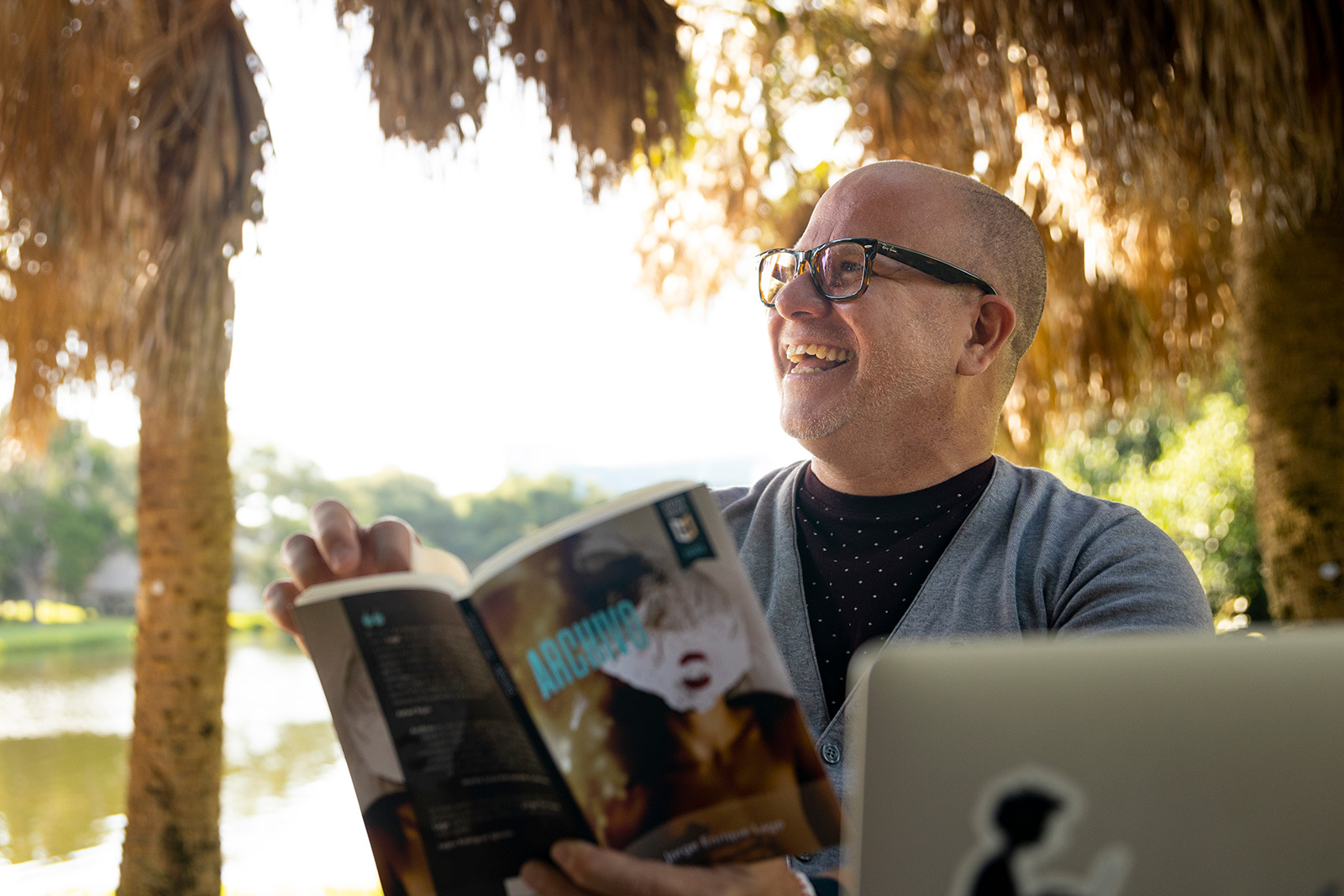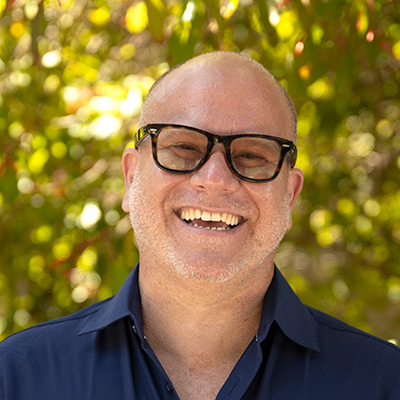
Assistant Professor of Spanish Axel Presas reads under a chickee along Fox Pond. Photo: Penh Alicandro ’22
When you talk about Ifá, Axel Presas, an assistant professor of Spanish at Eckerd College, leans a little forward in his seat and his hand motions come alive.
As a Babalawo—a high priest in the West African religion—he takes his sacred responsibilities seriously and regards its practice as intrinsic to his heritage.
“I’m from Cuba, and African influence is everywhere in our culture,” Presas says. “We breathe, we live, we eat, we experience and we dream in Afro Latinidad. Whoever says otherwise is not well acquainted with our culture or does not want us to know that it is true.”
Presas received his calling to the Ifá priesthood as a youth, and he believes his vocation as a professor is an opportunity to educate others on the richness of Cuba and broader Afro Latinx life through language and story. This fall, he’ll be teaching Elementary Spanish, Intermediate Spanish and Cuban Literature back in Florida, the place where his journey to academia accelerated.
“I’m excited to teach what I know, to teach about what I have so proudly, vividly experienced and learned,” he explains. “I’m also excited to have wonderful relationships with my students and colleagues throughout campus.”

Axel Presas, Ph.D.
As a college student in Cuba, Presas wanted to study philosophy and be a writer. His mother took a job from the Honduran government organizing art schools and cultural programs, and later decided to defect. Presas followed, leaving behind a tradition and culture that began when a Spanish soldier ancestor married an African woman on the island 90 miles south of Miami. But in Honduras he found that Afro Latinidad was larger than his own people. Through his work as an English teacher and translator for charity organizations, Presas befriended Garifuna Hondurans and found that the commonality in their ancestry was driving him toward returning to college to finish his education.
“I decided to do something pertaining to my culture,” he says. “I got acquainted with the Garifuna, a different culture and people. I loved it so much I thought, Why don’t I teach about that?”
Presas chose the University of South Florida to earn his bachelor’s and master’s degrees, and along the way he met his wife, Blanca Catalina-Garcia ’03, who sang the praises of her small liberal arts education at Eckerd. He earned his Ph.D. in Spanish, Hispanic and Latin American Cultures, Languages and Literatures at the University of Wisconsin–Madison and published two collections of poetry, Las veces que Azrael no se detuvo (Colección Valparaíso de Poesía) and El Temerario Y Otros Poemas (Colección Poéticas).
Although he was quite accomplished, the longing remained for the father of two girls—even as a visiting professor at Emory University—to return to the warmth of Florida.
An advertisement for a tenure-track position in the Spanish discipline of the college that so positively impacted his wife seemed to be the work of the spiritual world. Presas learned Eckerd College was also looking for an instructor with expertise in Afro Latinx cultures, and he knew this opportunity was the next step in his journey.
In his Cuban Literature class, Presas plans to highlight four authors—two male and two female, two current Cuban residents and two in exile—who can illuminate the contemporary issues of the people and launch larger philosophical discussions about Afro Latinidad and resistance. To him, Ifá’s embrace of the spirit world, divination and reverence for the natural world also exists in this philosophical conversation.
“Everyone in Cuba knows about Ifá, but there are not so many acolytes. This rejection of heritage is a form of racism,” Presas explains. “Recently, much like Chrisitanity and to a lesser degree Islam, it is being commericalized more without respect. Ifá is for everybody, but not everybody is for Ifá.”












